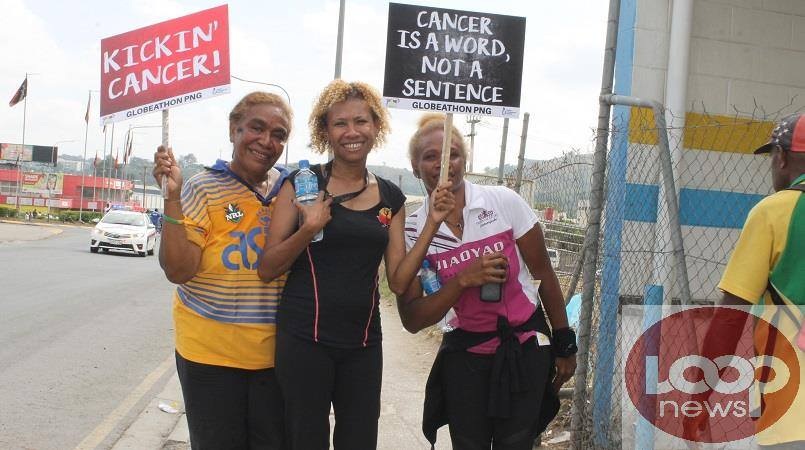
Cancer is one of women’s biggest killers in PNG.
As statistics reveal, cancer is responsible for roughly 1,500 female deaths annually.
And with the demographic health survey saying that an average Papua New Guinean family size is four children, this leaves about 6000 children motherless yearly.
Cancer, particularly cancer-below-the-belt, is still a very uncomfortable topic to discus with women and even men.
But health specialists keep reminding us that knowing about these cancers and what you can do to help prevent them or find them early (when they are small and easier to treat) may help save your life.
According to redbookmag (http://www.redbookmag.com/body/health-fitness/a42762/gynecologic-cancer/), here are 10 things you need to know about below-the-belt-cancers:
1. Cervical, ovarian, and uterine are the most common types of gynaecologic cancer, followed by vaginal and vulvar.
2. Incredibly, embarrassment over talking about "that part" of a woman's body is still a barrier to taking awareness of gynaecologic cancers fully mainstream.
3. There are 150 strains of HPV, a dozen of which can cause cancer.
4. The BRCA1 and BRCA2 genes aren't the only concerns when it comes to gynaecologic cancer.
5. Cervical cancer is the only one of these types of cancers to have a reliable screening tool.
6. While there's no screening for uterine cancer, its first symptom—unexplained bleeding—tends to manifest early in the disease's progression.
7. A staggering 70 percent of ovarian cancers reach Stage III or IV before they're diagnosed.
8. There's been some controversy over how frequently women need to get a pap smear and a pelvic exam. Regardless, you should see your gynaecologist once a year.
9. There's a shortage of gynaecologic oncologists. In fact, fewer than 60 percent of patients ever see one.
10. Gynaecologic cancers are still waiting for a groundswell of women to demand better research and more funding.
In PNG, groups and organisations have now taken on the role to educate and raise awareness on these cancers.
Pacific International Hospital (PIH) PNG is one leading the fight to end women’s cancer.
In October, PIH will conduct its cancer prevention program, according to Dr Mathias Sapuri, the United Nations in-country physician and senior consultant obstetrician and gynaecologist.
This means that in the next month, October, PIH will offer pap smear and ultra-sound screening for gynaecological cancer and other. Screenings also include mammogram for breast cancer.
“For the community out there in Port Moresby, this is an opportunity for you to be able to come out and screen to be sure your cervix is normal, your ovaries are normal and your genital tract is ok.”
For more information, please contact Dr. Sapuri or the Pacific International Hospital through http://www.pihpng.com
